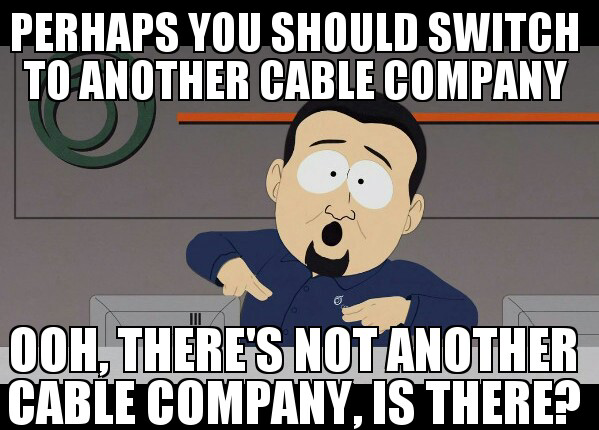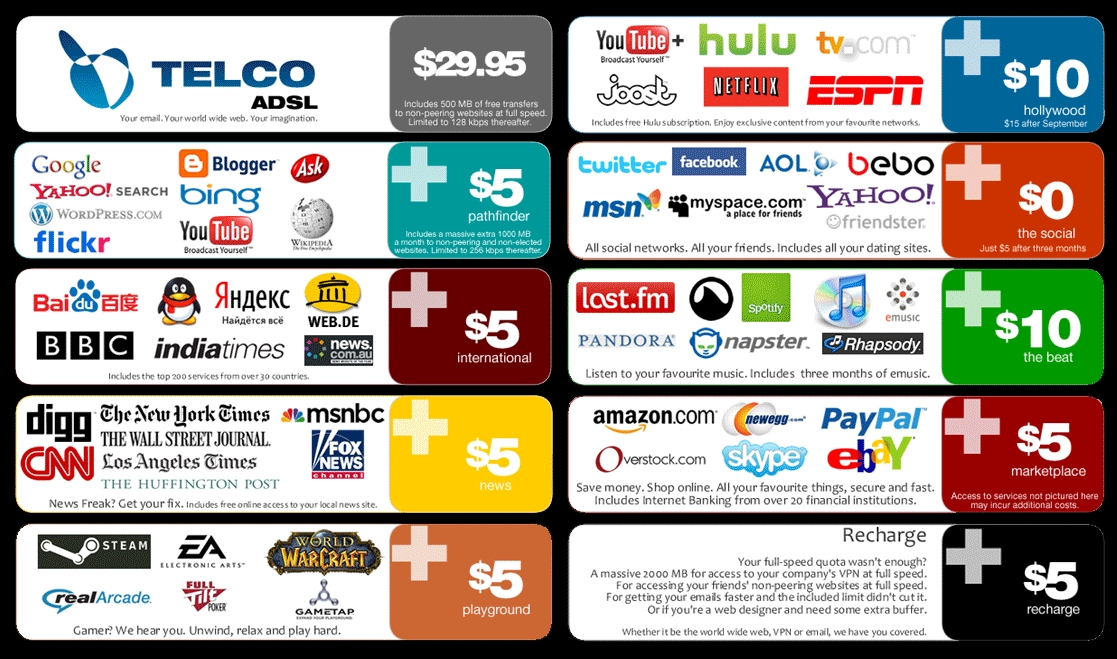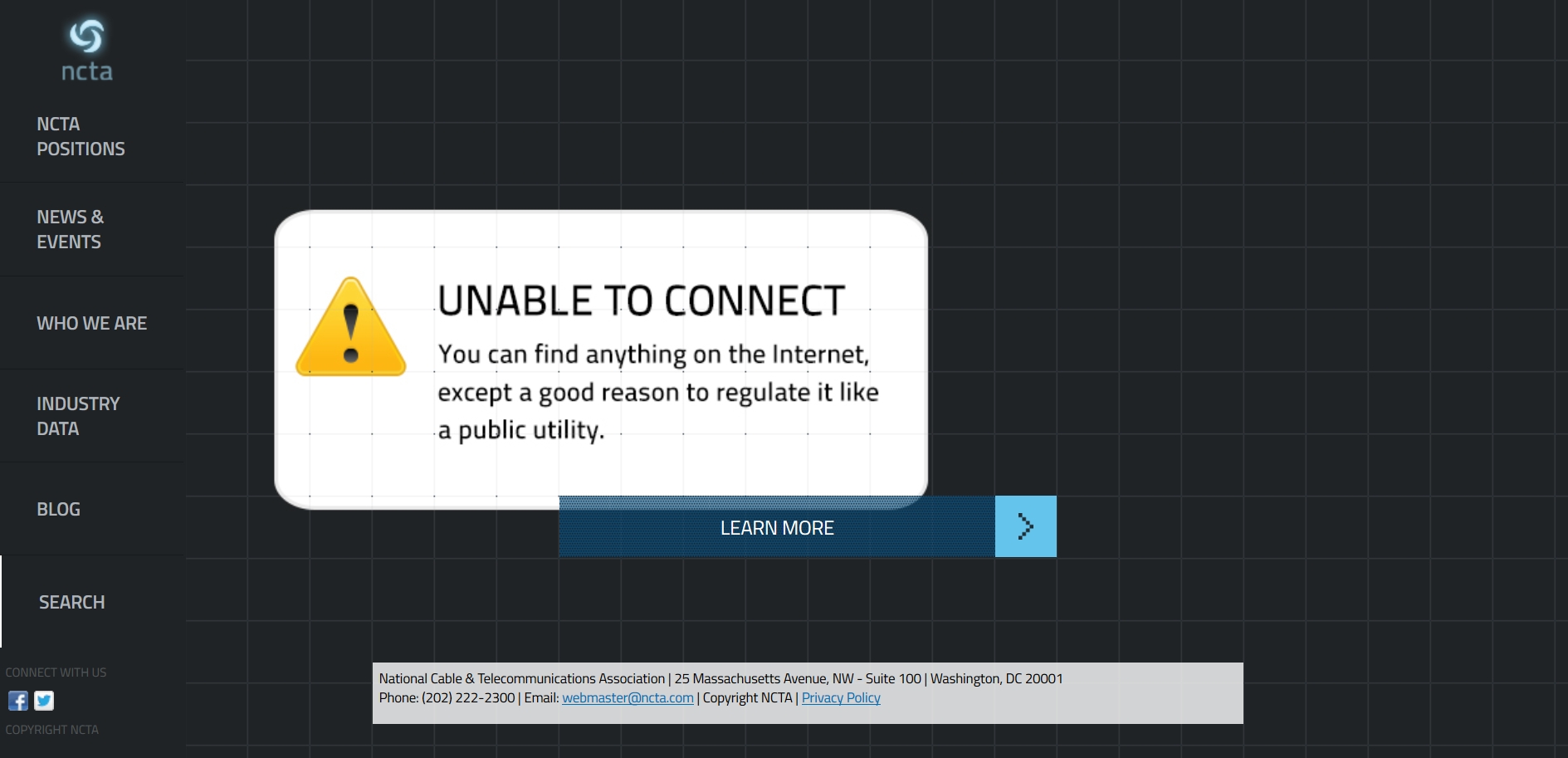Tag Archives: Tom Wheeler
And here we go
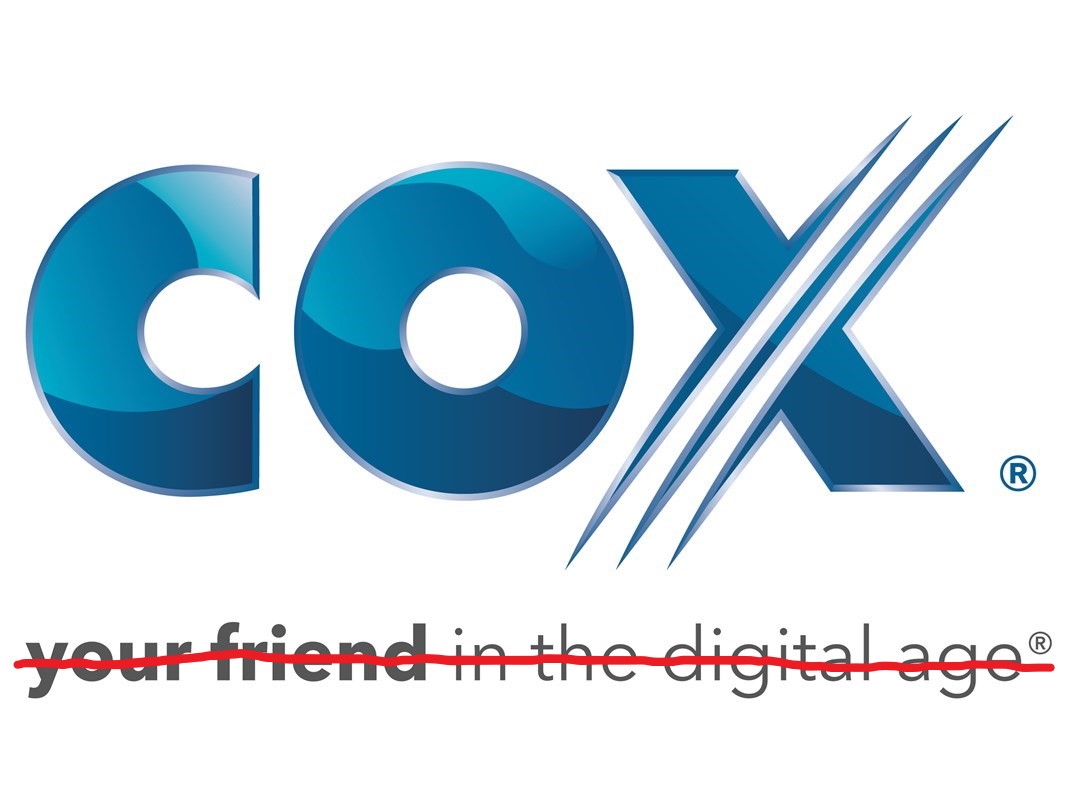
it begins. Everyone knows that cable / Internet companies are shady, shifty organizations whose disgusting practices (did I mention their disgusting practices?) have made them the most despised companies in America, among all industries. That means if you took the worst companies from every industry; cars, sandwiches, grocery stores, clothing manufacturers, everything, and then chose the worst of those, cable / Internet companies would still be on top of the list. They are monopolies that do everything in their power to stifle competition and make you pay for it. I always have to emit a disdainful sneer when they tell me how fast their service is, yet limit how much I can use it.
On the other hand, I’ve always been relatively happy with Cox Communications, who was my provider when I lived in Las Vegas, and is again now that I am here in Irvine. They always tended to keep out of my business, and while the other cable companies were wallowing in a swere of poor cutsomer service and poor performace, Cox just trudged along.
Now, however, it appears they are becoming emboldened, and I suspect that is because of the appointment of Ajit Pai as head of the FCC, which is the worst news that could happen in this domain. When Tom Wheeler, a former cable company lobbyist, was appointed, everyone thought it would be the end of net neutrality, however he happily surprised us all. I suspect we will not be so lucky with Pai in place, and if this email from Cox is anything to go by, we could be in some real trouble.
Note the email states they will automatically charge for additional 50GB blocks, something my cel phone provider does as well, and provides what was supposed to be an evaluation of my Internet usage but shows a bunch of zeros instead. I wonder if that was deliberate, or a simple oversight. At least they try to assure me that I shouldn’t have any problems with this based on past usage, although I am a heavy user of Steam (although not so much a heavy downloader).
I’ll just leave it here for you to read in fear, and hope we can fix the incoming storm that is sure to happen.
Today is the big day (UPDATE: It Happened!)
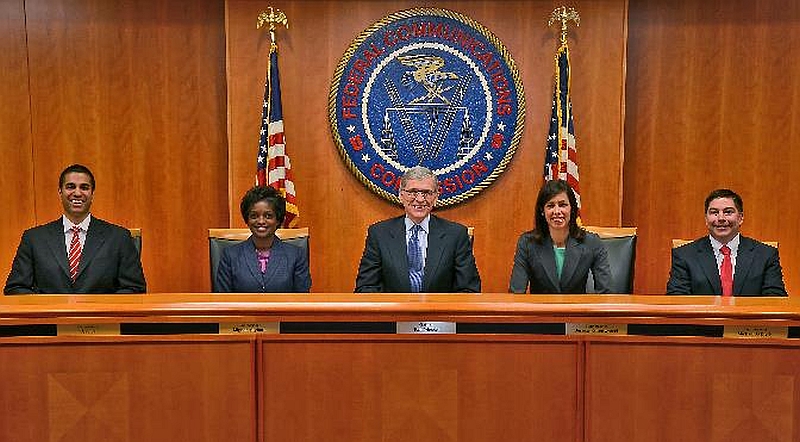
UPDATE: It has happened, as we hoped. The FCC has adopted what it refers to as “Strong, Sustainable Rules to Support the Open Internet.” The vote was along party lines as we all knew it would be, and it forbids paid prioritization while classifying Internet providers as common casrriers, meaning they are now utilities like power and water and subject to severe regulations. You can read the statement from FCC chairman Tom Wheeler here, from Commissioner Jessica Rosenworcel here, and the formal announcement about the new rules here.
So what does it all mean? ISPs like Comcast, Verizon, Cox, and Time-Warner will not be allowed to throttle speeds to legal data, block access to legal sites, charge certain services more to use their lanes (paid prioritization), and they also have to let the FCC know about their network management practices ensuring everything they are doing is on the level. Unlike the previous rules passed in 2010 and shot down by the Supreme Court,these new rules apply to wireless carriers as well. VoIP (Voice Over IP) was less affected.
Go Tom Wheeler!

WARNING: This post is pop-culture heavy.
Did you by any chance read the (re)post I made recently about net neutrality and why it is so very, very important? Did you at least watch John Oliver’s video about it all? One of the huge complaints about it all is that Tom Wheeler, a former cable company lobbyist, was appointed as head of the FCC, the very commission whose task it is to oversee the regulation of the Internet and its providers. How could we ever hope to keep providers like Comcast and Verizon and Time-Warner Cable in check, preventing them from charging us higher prices for inferior service with him there? More importantly, how could we achieve Net Neutrality, in which all bits are treated equally, or especially Title II classification in which the Internet is considered a utility, like power or water and regulated as such, with a person like that in charge of it all?
Very Important: Today is the great internet slowdown

(Before I get to the post proper, I implore you to at the very least watch the video at the end of this post.)
Did you wonder what that hovering-loading-pop-up-thing was on top of the site today? Did you fill it out? Submit it? You should have. If not, visit the site in a new browser (it only appears once per visit so you’ll have to use a new browser), fill out your info, and send it in.
That thing popped up because today is the National Internet Slowdown Day. Many sites are participating including Reddit, Vimeo, Twitter, WordPress.com, Netflix, Wikia, Digg, Imgur, Dropbox, Mozilla.com, Foursquare, Meetup, and Etsy to name only a few.
But why?
As you may or may not know, the Internet as we know it is under attack. Never mind the almost religious fervor with which the international community has attempted to wrest control of the Internet (inasmuch as it can be called ‘control’) from the U.S. based, but not U.S. controlled, ICANN organization. Or the fact that Russia has mandated that all bloggers with over 3,500 unique monthly visitors register with the state, or their offering of rewards for people who can crack the secretive TOR network and identify its users. Never mind our own attempts at regulation such as PIPA or SOPA, or the constant hacking attacks that happen all the time.
No, we’re talking about the equal treatment of data on the Internet, more properly known as Net Neutrality. Essentially it means all Internet traffic is treated the same, no data is prioritized over other data. Your email to your parents gets the same priority as someone buying from Amazon or watching Netflix or accessing Canvas. But cable companies don’t want that.
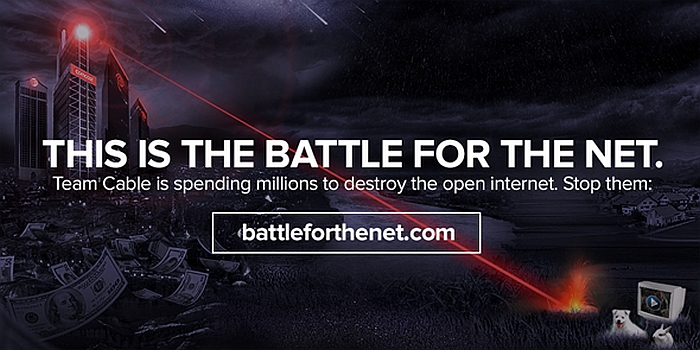 You see, cable companies want to charge big content providers to deliver their content more quickly and reliably than other content. For example, Comcast wants to charge Netflix and everyone else to give them higher-priority lines to their customers. They would also de-prioritize traffic from companies that couldn’t or wouldn’t pay. This would have sever negative effects; Netflix would have to pass the cost of that prioritized traffic on to you, the customer, and it would stifle small companies that may be innovative and offer innovative products and innovative services, but because they can’t pay for the bandwidth they need they would effectively be shut out of any type of success.
You see, cable companies want to charge big content providers to deliver their content more quickly and reliably than other content. For example, Comcast wants to charge Netflix and everyone else to give them higher-priority lines to their customers. They would also de-prioritize traffic from companies that couldn’t or wouldn’t pay. This would have sever negative effects; Netflix would have to pass the cost of that prioritized traffic on to you, the customer, and it would stifle small companies that may be innovative and offer innovative products and innovative services, but because they can’t pay for the bandwidth they need they would effectively be shut out of any type of success.
Not only that, your quality of service will go down, your Internet speeds will go down, and your costs not just for Internet service but the services that use it (like Netflix) will go up.
Not only that, say Comcast invested in a streaming service like, oh, say Hulu. They could prioritize Hulu traffic and stifle Netflix traffic. They have been directed not to do that, but they are so blatant about their anti-competitive practices it wouldn’t surprise me in the least to see them do it anyway.
Or they could simply charge you extra if you wanted to visit certain sites like Amazon or Netflix or CNN or whoever. Perhaps they could bundle pricing like they do with cable channels: If you want good access to news sites like CNN and Fox News and NBC then you pay a fee for that group of sites, and if you want access to retail sites like Zappos or Macy’s or Barnes and Noble you’d pay for that too. Or if you’re a gamer, there’d be a bundle there as well. Something like this, perhaps:
Of course cable companies, ISPs, and hardware providers are doing all they can to make the Internet, your Internet, one big command-and-control that they lord over like dictators, and if something isn’t done the entire Internet and on-line experience will change, and not for the better.
Reclassifying them as common-carriers, which is being considered as what’s known as a ‘nuclear option,’ would mean they were considered a utility like power and water and therefore could be heavily regulated. Needles to say, they absolutely and steadfastly do not want that, because it would force them to be fair, ending idiotic statements like this.
There are opposing views, by the way, and some are able to make well-written, compelling arguments against the common-carrier idea. Of course, that link is actually to the National Cable and Telecommunications association website, so their position should be of absolutely no surprise. After all, below is what pops up if you visit their homepage – are you surprised?
And the whole thing can be eerily convoluted.
Net neutrality is something people should be enraged about. They should be rioting in the streets, it will impact every single one of us and further cement the monopolies that the cable industry already enjoys. People’s passivity about the whole thing is baffling.
FCC chairman Tom Wheeler, who used to be a cable-industry lobbyist, didn’t seem to care in the past for pretty obvious reasons – he was still well-aligned with his previous industry.
But then something happened. Something very important. Something we didn’t expect, and didn’t see coming, but that we desperately needed. After witnessing it, suddenly the whole thing shifted tide.
John Oliver.
It turns out that you, yes YOU dear reader, can actually go to the FCC’s website and leave your thoughts about Net Neutrality, but many people don’t know that (I only linked to the main page so you can see all the issues open for comment. You want 14-28, but look at what’s number 1!). But once John Oliver laid out the importance of this fight in very clear language, the FCC’s servers crashed under the weight of the response. And that’s what we need! It’s what you need. It even miraculously appears to have swayed Tom Wheeler himself!
I posted this video last semester, and I am doing it again here because it is so important. If you do nothing else, please watch this video, and leave a comment with the FCC before September 15th. You’d better do it now, because very soon it will be too late.
You, YES YOU, can still comment on net neutrality
Remember the post I made about Net Neutrality, the one with John Oliver ripping on the whole idea of mergers and the loss of Internet freedom? Well guess what? Proving that the Internet works exactly as intended when left to the whims of the unwashed masses, his plea to leave comments about maintaining Net Neutrality crashed the FCCs servers! Democracy works!
Last night in class the comment was made that the time for comments had been extended until Friday because of the overwhelming response, and just today I saw on Cnet that not only had Netflix filed a comment of its own regarding Net Neutrality and interconnection (connecting directly to the major network carriers) and how did it ultimately explain its situation? that’s right, it just told regulators to watch the John Oliver video. It’s so important I’ve included it again below.
But don’t just watch the video! You – YES YOU – can leave a comment of your own of the FCC’s website that is still seeking comments. Say something, this is a very big deal. If Net Neutrality falls through, it will be the end of the Internet as we know it; higher prices for worse service, being nickel-and-dimed for everything you want to do (for example additional charges to use Facebook or Twitter), only having access to the services your cable company wants you to have access to, slower speeds, it will be a disaster. I mean really, since when did gigantic mergers ever result in better service? Will Time-Warner ever learn?
You can leave your comments for the FCC on this and a number of related issues here. Do it!
You’d better watch this video right now.
This post will dovetail with the one below, so you might want to read them together.
Are you familiar with Net Neutrality? If not, you should be. It’s one of the single most important technical challenges we are facing as a country, and as a global community. The Internet is under regulatory attack on two separate fronts, and no one seems to care. As crazy as we go over soccer or the Kardashians or legalizing pot, the future of the Internet just doesn’t get a lot of public attention.
But it should. Because we may be on the brink of losing the Internet as we know it.
The first issue is the handover of ICANN, the organization that controls the creation and control of web addresses, from the control of the United States. Honestly, it’s not really under the control of the United States, as other governments have a say in issues that come up, but it’s headquartered in California and it’s generally considered that we’re the final authority. It wouldn’t normally bother me that a global entity such as ICANN ends up under global control, except the countries that really fought to have it released include Russia, China, and North Korea, some of the most oppressive countries on earth when it comes to the flow of information and the right of people to voice opinions. They couched it in terms of concern over security in light of the Snowden leaks, as have other countries, however I’m of the firm belief they so desperately want this to happen so they can more heavily regulate what appears online, especially dissent.
But the much, much more immediate threat is the end of Net Neutrality. Net Neutrality essentially means all Internet traffic is treated equally, and no one’s data is more important than anyone else’s.
 However, with appointment of former cable-company lobbyist Tom Wheeler as head of the FCC, the bizarre decision by the Supreme Court to end legal requirements to maintain Net Neutrality, and the impending merger of two of the largest cable providers in the country, Net Neutrality has a fight of Biblical proportions in front of it.
However, with appointment of former cable-company lobbyist Tom Wheeler as head of the FCC, the bizarre decision by the Supreme Court to end legal requirements to maintain Net Neutrality, and the impending merger of two of the largest cable providers in the country, Net Neutrality has a fight of Biblical proportions in front of it.
If it ends, that means some services will be forced to pay for better service for their customers. For example Netflix would pay Comcast to not slow down their service, but that would mean a higher cost that Netflix would have to pass on to you. Or, if a cable company has an investment in one service, they could stifle the speed of a competitor that you are using making it unusable. We have already seen the issue crop up. The Internet will never be the same; you will be charged more for inferior services, and be at the mercy of the providers.
However, after typing all this, rather than typing another 1000 words I am just going to let John Oliver explain it. He does an outstanding job. shows charts and graphs that really illustrate the problem, and you’ll have a good chuckle along the way. Don’t miss it, it’s a very, very important issue that can end up impacting all of us.


